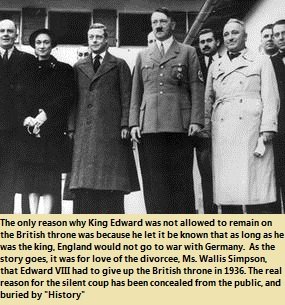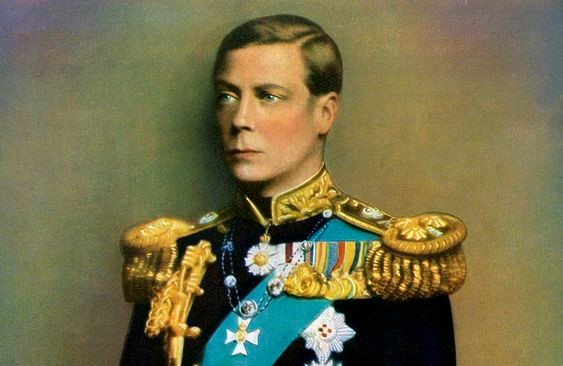As a junior officer in the First World War, Edward VIII mixed with ordinary men and women and served on the western front, although he was not allowed to fight. This experience gave him the conviction that Britain should never go to war with Germany again. It was this belief which led to his support for the appeasement of Hitler in the 1930s.
The ‘official’ line that they want you to follow is propagandized by Wikipedia:
Edward abdicated (resigned) from the throne, because he wanted to marry the American Wallis Simpson. Simpson had been married twice before. As King, he was Head of the Church of England, and the Church did not support divorce. After abdicating as king, he was known as His Royal Highness the Duke of Windsor.
From the manipulated and controlled Wikipedia
Some sources describe him as a ” treacherous Nazi sympathizer”. In reality, he did not want war with Germany — but he no longer holds the microphone. His younger brother happily went along with their war scheming and is portrayed a a national hero for his acquiescence to the war scam.
In late 1940, when interviewed by an American magazine, he said: “There will be no revolution in Germany and it would be a tragic thing for the world if Hitler were to be overthrown. Hitler is the right and logical leader of the German people… Hitler is a very great man.”
Edwards experiences at the front in WW1 had a profound effect on him. As a result, he tended towards appeasement. As King, he told his the government that he would abdicate if the country chose to stop Hitler’s march in Europe — and told the German ambassador he had done so. This led the German government to believe that England would roll over and not bother him — because who would want a popular King to abdicate! His visits to Germany five months after his abdication was a public relations disaster for England. Hitler and those around him curtsied to Edward and Wallis. The Nazis openly mourned the loss of Edward on the throne. Edward had pacification beliefs for Europe.
In May 1939, Edward recorded a radio address that described the death and misery that he had seen in WWI. He encouraged steps to ensure that it should never to happen again. This was treated as appeasement in an era of British warmongering. The BBC propaganda machine did not air this speech in England.








